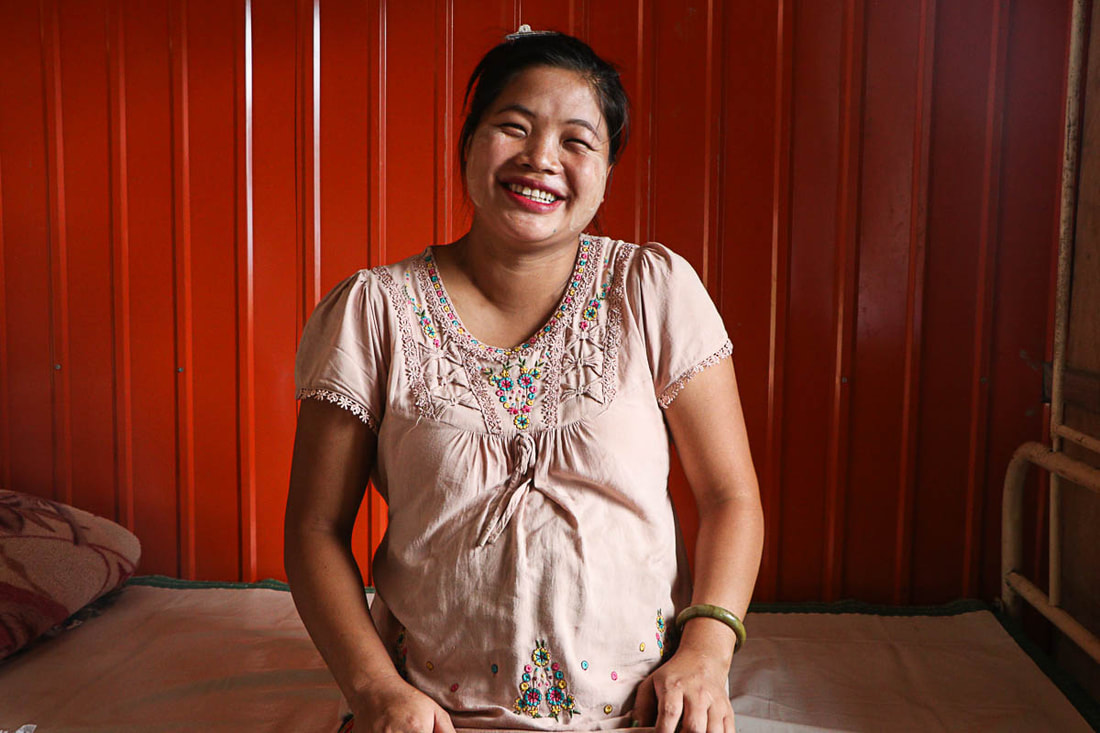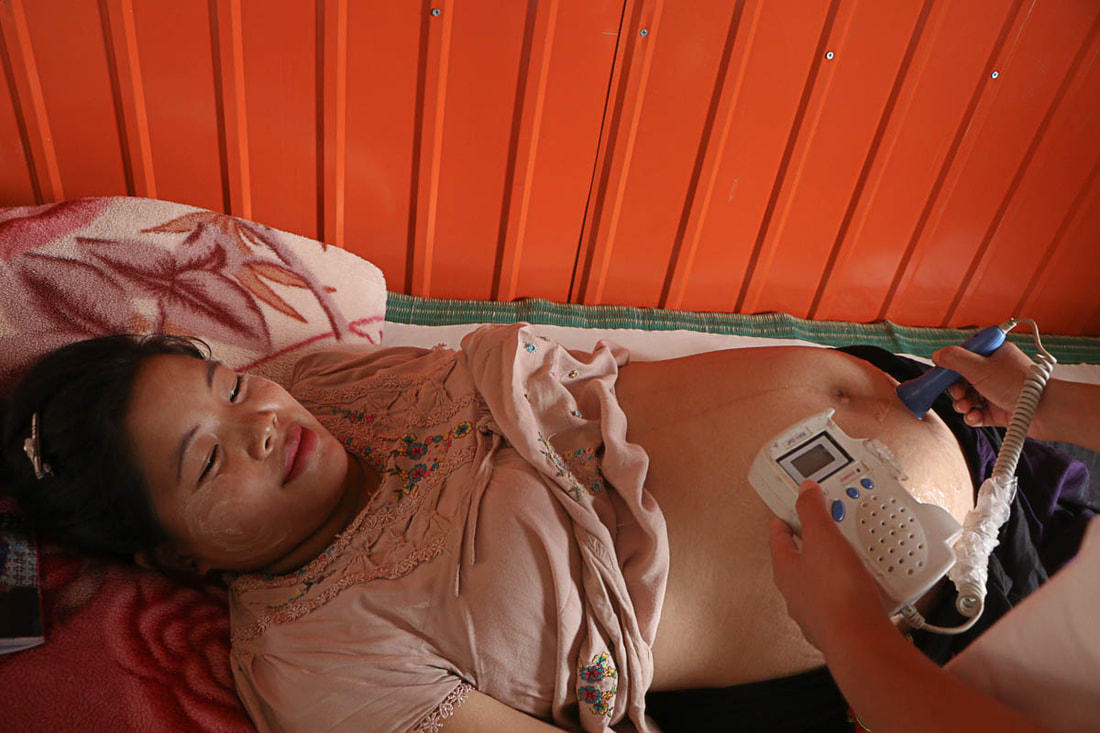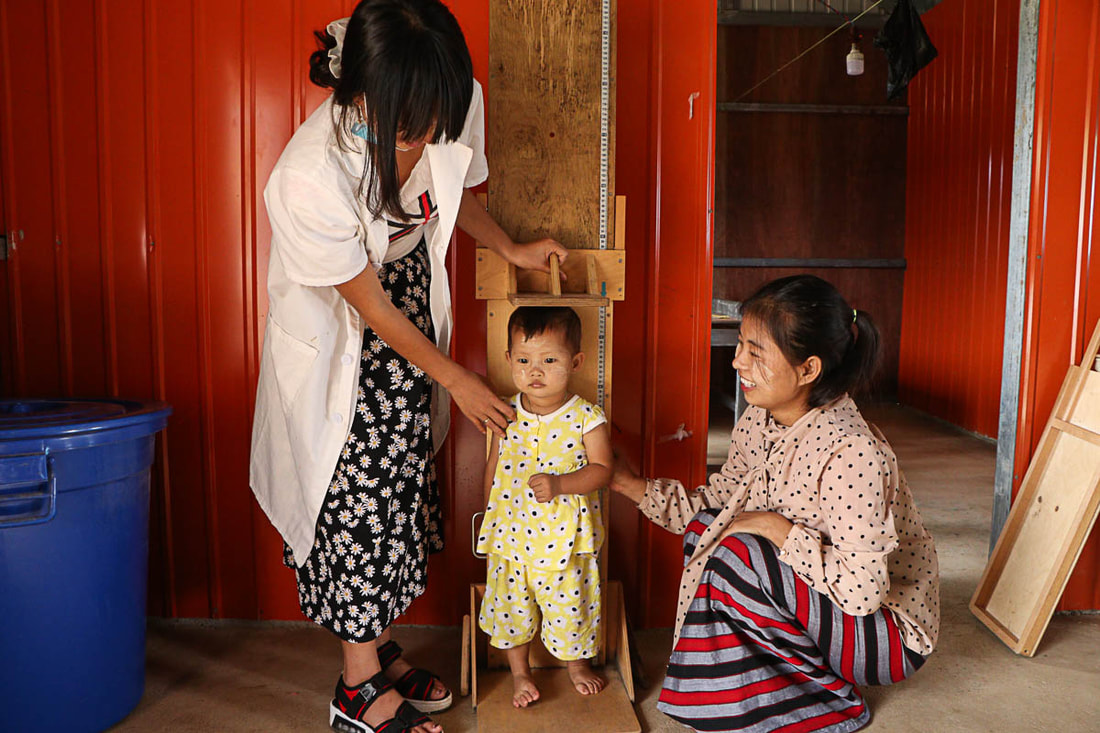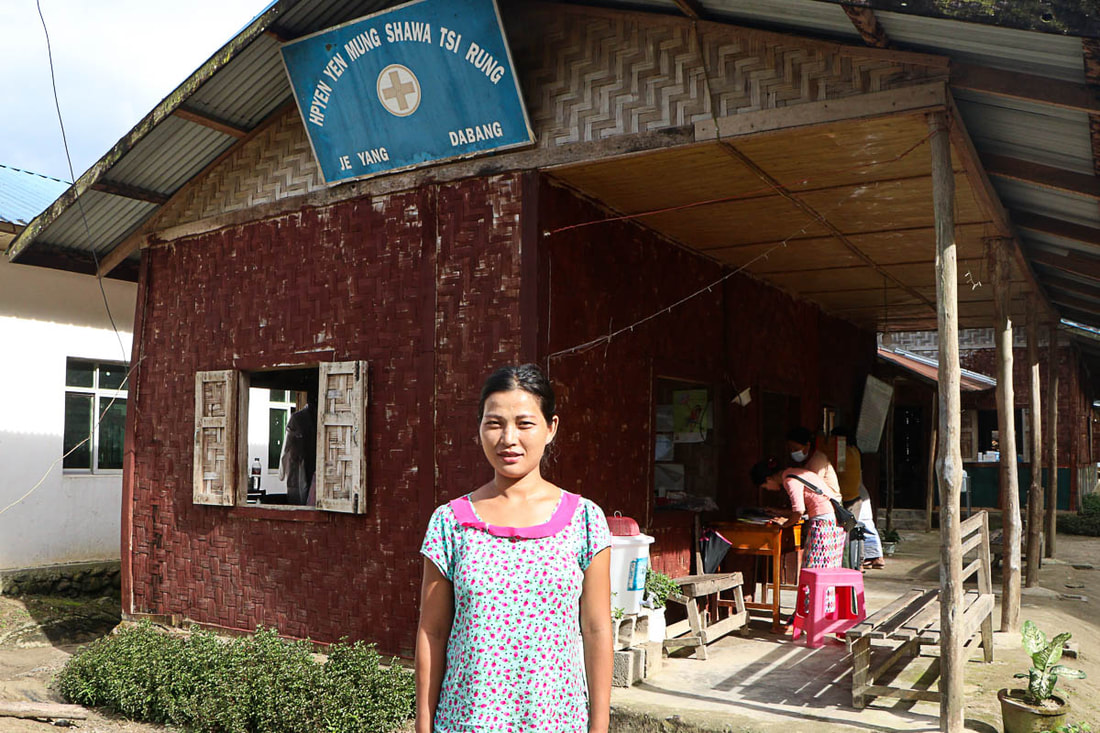|
In Kachin State, Myanmar, nearly 100,000 people live in displacement camps. Some have been there for 10 years or more, forced to flee their homes due to the conflict that continues to rage in this restive and contested region. COVID-19 is now spreading rapidly in Myanmar and the country has one of the world’s weakest health systems. The cramped and crowded conditions in displacement camps make residents especially vulnerable. Community Partners International (CPI) is working with community-based partners in the displacement camps to operate clinics and health workers teams providing essential health services including COVID-19 prevention and response. We spoke to three mothers living in the displacement camps about the situation and the free health care they receive through the camp clinics supported by CPI. 1. Kot Maing Kot Maing is 25 years old and is pregnant with her second child. In 2015, the family fled conflict and sought shelter in a displacement camp. Five years later, Kot Maing and her family remain displaced in Nhkawng Pa camp. “My husband farms lemongrass and make essential oils that we can sell to buyers in China. But with COVID-19, there is less demand and so we are facing financial hardship.” “This clinic is the only one that we depend on. I regularly attend check-ups here during my pregnancy. The nurse here gives me advice on reproductive health, nutrition and family planning. “I feel safer because there is a clinic here. We don't have to worry about how we will pay for the care they provide. We can’t afford to go anywhere else.” 2. Hkon Sum Hkon Sum is 23 years old and has two children, a one-year-old daughter and six-month-old son. In 2017, the fled conflict in their hometown in war-torn Kachin State, northern Myanmar, and sought shelter at a camp for internally displaced persons (IDPs). Three years later, the family remain displaced in Nhkawng Pa camp. “I had to move here because of the war. I was married here and gave birth to both of my children here.” Hkon Sum receives free maternal and child health care services through the camp clinic supported by CPI. This includes pre and postnatal care, essential supplements and multivitamins during pregnancy, support for clean, safe births, and testing for hepatitis B and HIV. "Though I live in the camp, I am happy to have such a reliable clinic available. All healthcare services here are free of charge. The staff give me advice on nutrition, reproductive health and personal hygiene. If I’m not able to come to the clinic due to illness, the nurses provide a door-to-door service.” 3. Dwe Nan Dwe Nan fled her home village in 2010 due to conflict in the surrounding area. Ten years later, she remains displaced. She lives in Je Yang displacement camp with 8,000 other internally displaced persons. While in the camp, Nan married and gave birth to three children. Today, she is pregnant with her fourth child. “When we first arrived, I was worried about food, shelter, and health care. It is a relief to access free care from the clinic. All my children were born here and I come regularly for check-ups now that I am pregnant.”
"Despite the hardships we face, I still hope for a better future for my children." Comments are closed.
|
AuthorCPI Admin Archives
July 2024
Categories
All
|
|
|
COMMUNITY PARTNERS INTERNATIONAL
580 California St Fl 16, Ste 1658, San Francisco, CA 94104-1068, USA [email protected] +1 510 225 9676 We are a registered nonprofit 501(c)(3) Public Charity. TAX ID 94-3375666 |
©
Community Partners International





 RSS Feed
RSS Feed
